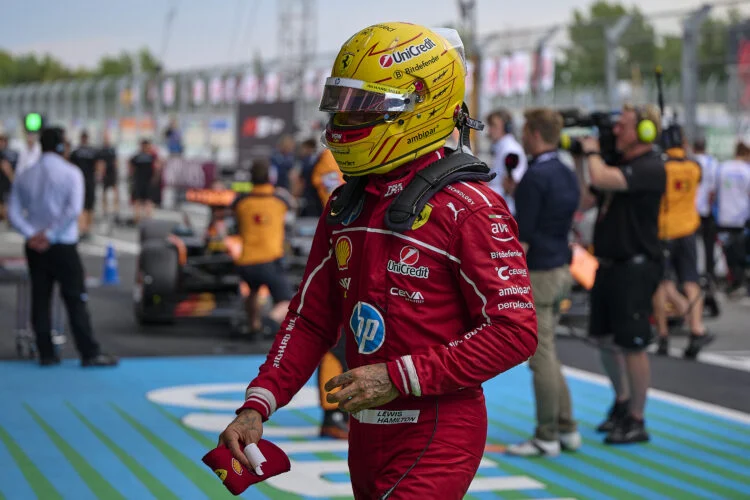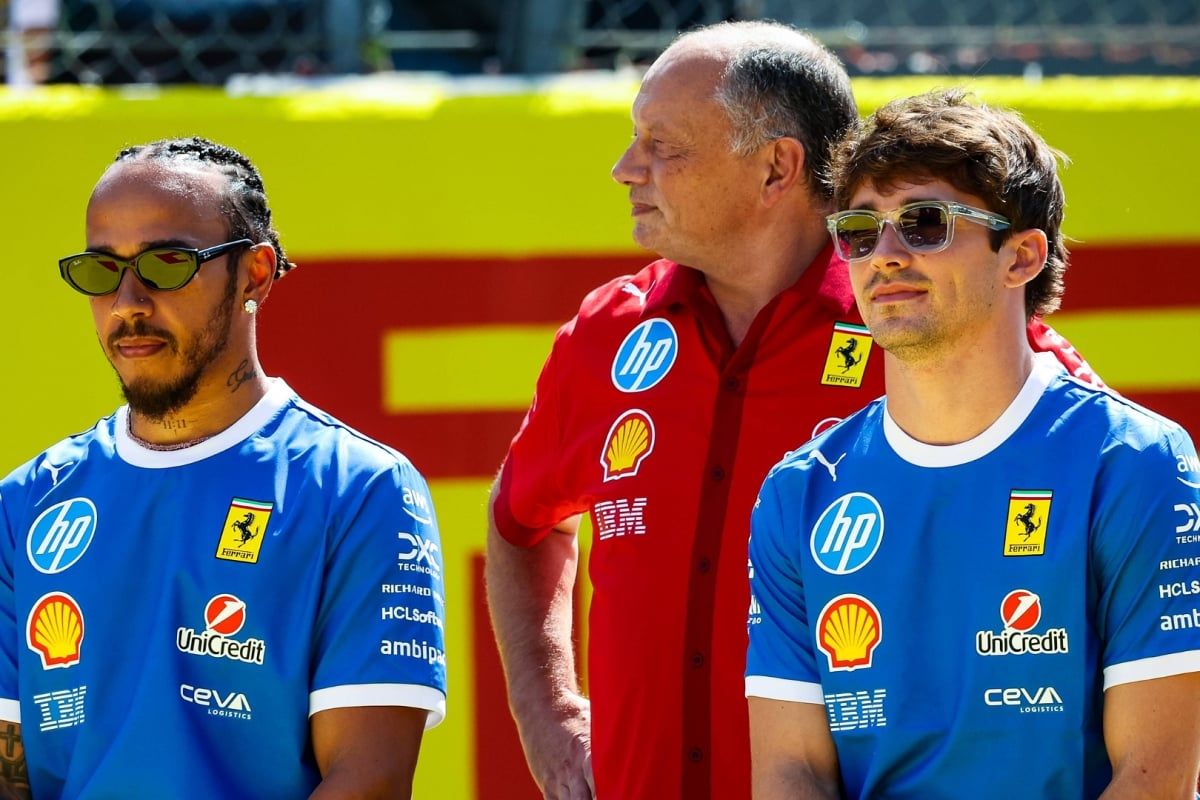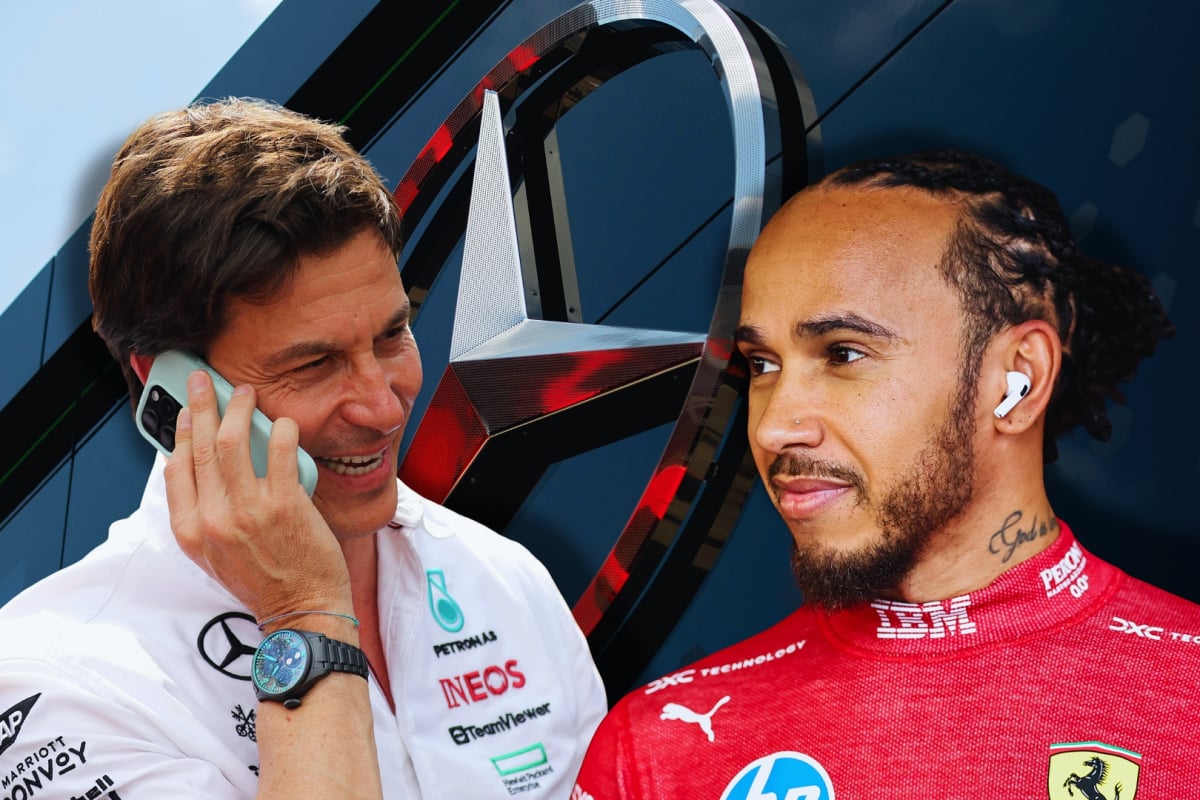Lewis Hamilton Keeps Saying Something at His ‘Lowest Moments’ That Risks Up… read more
Lewis Hamilton’s demeanor following the 2025 Spanish Grand Prix was yet another indication of the turbulent emotional ride he is experiencing in his debut season with Ferrari. Once synonymous with unshakeable optimism and confidence at Mercedes, Hamilton’s body language and words have shifted notably since donning the red of the Scuderia. As frustrations mount over underwhelming performances and missed podiums, one recurring phrase he keeps using during his lowest moments is beginning to cause concern within the Ferrari camp—particularly among the mechanics and engineers tasked with delivering the results he craves.
After finishing in sixth place in Barcelona, Hamilton was once again visibly disheartened. His post-race interviews were tinged with frustration, as he alluded to his car’s shortcomings and the team’s apparent lack of competitiveness. But it’s what he keeps repeating behind closed doors that’s sparking internal unrest. According to insiders, Hamilton has repeatedly said variations of the phrase: “This wouldn’t have happened at Mercedes.” While it may seem like an honest expression of frustration from a seven-time world champion who was used to years of dominance, its repeated usage is beginning to wear thin on the morale of the Ferrari garage.
Mechanics, engineers, and other support staff have reportedly grown increasingly uneasy about Hamilton’s references to his former team. While they understand the competitive fire that fuels him, many feel these comparisons risk undermining their hard work and the progress they are trying to make with the 2025 car. The situation is made more delicate by the fact that Hamilton’s teammate, Charles Leclerc, has been consistently outperforming him and offering more constructive feedback. Leclerc’s approach—calm, technical, and focused on solutions—has endeared him more to the team at a time when Hamilton’s mood swings are causing quiet concern.
One Ferrari insider commented anonymously, saying, “We know Lewis is a world-class driver. That’s why he’s here. But constantly referring to what Mercedes would have done better doesn’t help anyone here. It’s demoralizing, especially when people have worked late nights and back-to-back race weekends just to give him a car that can compete.”
In Hamilton’s defense, his history of emotional transparency has always been part of what makes him such a compelling and human figure in the sport. He wears his heart on his sleeve, and his desire to win is as strong as ever. However, the transition from Mercedes to Ferrari has been anything but smooth. Not only is he adjusting to a new car and working culture, but he’s also facing the reality that Ferrari is still struggling to match Red Bull and McLaren on a consistent basis. This frustration has compounded with each race, particularly as he sees Leclerc making the most of the same machinery.
Hamilton’s statements—likely said in moments of heat, not out of malice—highlight the growing tension between expectations and reality. Ferrari signed him with hopes that his championship pedigree would lift the entire organization, both on and off the track. Yet halfway through the season, Hamilton is without a podium and languishing in the midfield far more than anyone expected.
Team principal Fred Vasseur now finds himself in a challenging position. While continuing to back both drivers publicly, he must also work behind the scenes to rebuild trust and cohesion. Hamilton must find a way to channel his frustrations more constructively, especially as Ferrari prepares for key upgrades in the second half of the season. A united front is critical if they are to close the gap to the front-runners.
Ultimately, Hamilton’s experience and talent are not in doubt. But in Formula 1, emotional intelligence can be just as vital as speed. If he wants to succeed at Ferrari, he may need to adapt his language as much as his driving—to inspire rather than inadvertently alienate the very team working hardest to help him win again.




